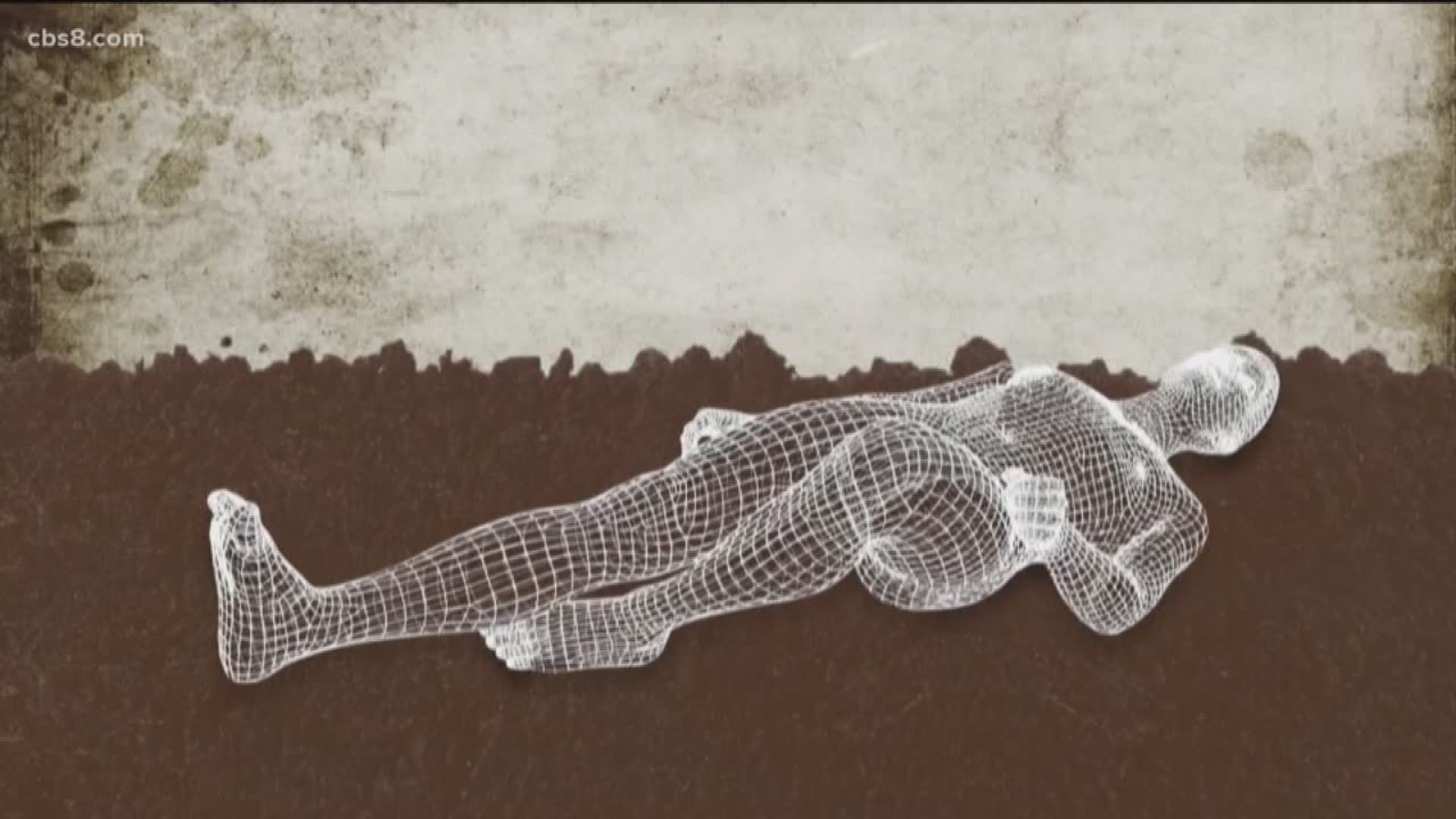SAN DIEGO — A final resting place isn't often discussed by most San Diegans.
"We have a family plot in another state, but I guess I’ve never really thought about it that much," said Paul Rosengard.
But: Ashes to ashes, guts to dirt or space.
Last week, Gov. Jay Inslee signed legislation making Washington the first state to approve composting as an alternative to burying or cremating human remains.
It allows licensed facilities to offer "natural organic reduction," which turns a body, mixed with substances such as wood chips and straw, into about two wheelbarrows' worth of soil in a span of several weeks.
"This option feels really kind of spiritual, the ability to return to the earth after we've died and to nourish the land again is something that really resonates for people," said Katrina Spade, founder of Recompose in Seattle.
Loved ones are allowed to keep the soil to spread, just as they might spread the ashes of someone who has been cremated — or even use it to plant vegetables or a tree.
Supporters say the method is an environmentally friendly alternative to cremation, which releases carbon dioxide and particulates into the air, and conventional burial, in which people are drained of their blood, pumped full of formaldehyde and other chemicals that can pollute groundwater, and placed in a nearly indestructible coffin, taking up land.
"That's a serious weight on the earth and the environment as your final farewell," said Sen. Jamie Pedersen, the Seattle Democrat who sponsored the measure.
Cemeteries across the country are allowed to offer natural or "green" burials, by which people are buried in biodegradable shrouds or caskets without being embalmed. Composting could be a good option in cities where cemetery land is scarce, Pedersen said. Spade described it as "the urban equivalent to natural burial."
The state senator said he has received angry emails from people who object to the idea, calling it undignified or disgusting.
"The image they have is that you're going to toss Uncle Henry out in the backyard and cover him with food scraps," Pedersen said.
To the contrary, he said, the process will be respectful.
Recompose's website envisions an atrium-like space where bodies are composted in compartments stacked in a honeycomb design. Families will be able to visit, providing an emotional connection typically missing at crematoriums, the company says.
Adelle Archer's company Eterneva takes a half cup of ashes placed in a personalized box, sent to Europe for eight months, as the human or pet ashes turn into carbon and become a lab grown stone.
The process costs $2,500 to $20,000 depending on diamond color.
Just as costly as sending a loved one to the moon literally as Memorial Space Flights send up human ashes by rocket and launch them among the stars, where they can be tracked by satellite.
“Going to space, that would be cool to do dead or alive right,” said San Diegan Greg Cohen.
Andvinyly in the U.K. spreads your loved one ashes inside a record that can play their voice.
The new law making it legal to compost human remains goes into effect in Washington in May 2020.

